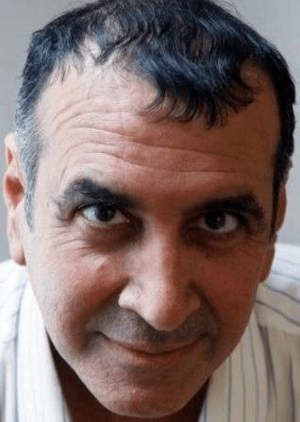Nur Masalha facts for kids
Quick facts for kids
Nur Masalha
|
|
|---|---|
| نور الدين مصالحة | |
 |
|
| Born |
Nur ad-Din Masalha
4 January 1957 |
| Nationality | Palestinian |
| Alma mater |
|
| Occupation |
|
| Known for | Critiques of Zionist narratives and historiography |
|
Notable work
|
|
| Scientific career | |
| Institutions |
|
Nur ad-Din Masalha is a well-known Palestinian writer, historian, and university professor. He was born on January 4, 1957. His work mainly focuses on the history, politics, and religious ideas related to Palestine. He often writes about important topics like the Palestinian Nakba (which means "catastrophe"), Zionism, and liberation theology.
Contents
About Nur Masalha
His Early Life and School
Nur ad-Din Masalha was born in Galilee in 1957. He went to the Hebrew University of Jerusalem for his first degree, studying International Relations and Politics. He finished this in 1979. Later, in 1982, he earned a master's degree in Middle East Politics from the same university. He then went on to get his PhD in Middle Eastern Politics from the School of Oriental and African Studies (SOAS) at the University of London in 1988.
His Career in Academia
Throughout his career, Nur Masalha has worked at several universities and research centers. He was a professor at St Mary's University, Twickenham, where he led a center that studied religion and history. From 2005 to 2015, he was in charge of a master's degree program there, focusing on religion, politics, and solving conflicts.
He has also been a senior researcher at the School of Oriental and African Studies and a part of the Centre for Palestine Studies at the University of London. He has held special research positions at other places like Durham University and the London School of Economics. Nur Masalha has also taught at Birzeit University in Ramallah, which is in the West Bank.
His Role as an Editor
Nur Masalha helped start and is the main editor of the Journal of Holy Land and Palestine Studies. This is a special journal where experts review articles before they are published. It used to be called Holy Land Studies. There is also a Spanish version of the journal.
He started this journal with Michael Prior in 2002. Many famous scholars and thinkers have been part of its advisory board, including Edward W. Said and Noam Chomsky.
What He Studies
Nur Masalha's studies look closely at the history, politics, and religious ideas behind the conflict between Israelis and Palestinians. He aims to tell history from a different point of view, focusing on Palestinian voices and looking critically at Zionist ideas.
In one of his books, An Oral History of the Palestinian Nakba, he and Nahla Abdo show how important the Nakba is to Palestinian memory. They highlight how telling personal stories helps keep these important perspectives alive. He also explores how religious ideas can support freedom and strengthen Palestinian identity, which he discusses in his book Theologies of Liberation in Palestine-Israel.
Looking at History Differently
Masalha has also looked closely at the work of other historians, especially Benny Morris. Morris wrote a book called The Birth of the Palestinian Refugee Problem, 1947–1949. Masalha, along with another scholar named Norman Finkelstein, has pointed out some concerns about Morris's first book on the 1948 Palestinian expulsion and flight.
Masalha believes that Morris's conclusions might lean towards a pro-Israeli view. He suggests that Morris used Israeli documents that were made public, but some more sensitive papers were not available to researchers. He also argues that Morris sometimes accepted Israeli documents without questioning them enough. Masalha also points out that while Morris said there was no clear plan to expel Palestinians, the information in his book seems to suggest that Israeli leaders like David Ben-Gurion and his team had an unspoken understanding to help move Palestinians out.
In response, Benny Morris said that his conclusions were based on enough different types of military and civilian documents. He argued that Masalha and Finkelstein had a pro-Palestinian viewpoint. Morris defended his strict definition of what counts as an "expulsion" and maintained that there was no official policy to move people out.
See also
 In Spanish: Nur Masalha para niños
In Spanish: Nur Masalha para niños
- 1948 Palestinian expulsion and flight
- Palestinian refugee
 | William M. Jackson |
 | Juan E. Gilbert |
 | Neil deGrasse Tyson |

